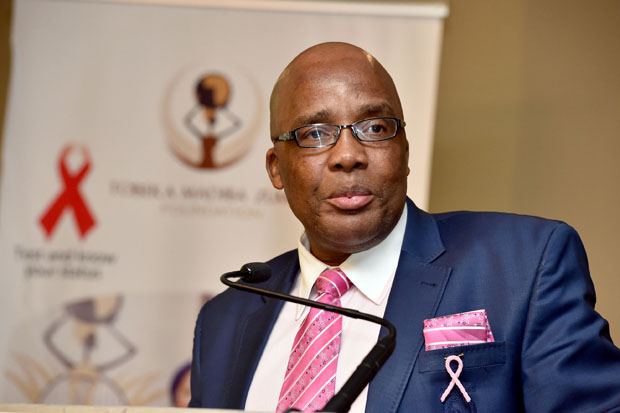
SOUTH Africa’s Health minister Aaron Motsoaledi has lashed at African leaders who seek medical treatment outside the continent, describing the practice as a heavy drain on the countries’ health budgetary allocations.
By Nokuthaba Dlamini/Xolisani Ncube

Motsoaledi made the remarks at the ongoing World Health Organisation (WHO) regional conference in Victoria Falls yesterday, where he urged African leaders to work hard to improve the health services in their respective countries and take a leading role by seeking local treatment.
“I have said this before and I will say it again: We are the only continent that has its leaders seeking medical services outside the continent, outside our territory. We must be ashamed of that. This is called health tourism. We must promote our own,” he said.
Most African presidents, among them President Robert Mugabe, Nigerian leader Muhammadu Buhari and former Angolan President Jose Eduardo dos Santos, are known for seeking medical services in Europe, Asia or in America, draining their countries’ resources and leaving ordinary people to make do with underfunded public hospitals.
The South African minister accused beverages manufacturer, Coca-Cola, of poisoning Africans through its toxic products that “kill our people slowly”.
“We have to be brave and face the people who are killing us. Hon Chair, Coca-Cola products are poisonous. They have sugar and when people get sick, we start to say they have been poisoned,” Motsoaledi said.
“Maybe we have been captured. In my country, there is this thing called capture, maybe we have been captured. We have to take the devil among us. It’s high time we attended to this issue.”
- SA hospitals hike fees for foreigners
- Zimbos blast Motsoaledi over xenophobic comments
- Growing concerns as Operation Dudula spreads
- Zimbabweans fork out US$24m for SA permits
Keep Reading
In his opening remarks yesterday, Mugabe lamented the underfunding of the health sector by many African states, including Zimbabwe, saying this had caused unnecessary loss of lives to curable diseases.
Officially opening the WHO regional conference, Mugabe challenged political leaders to urgently address the matter.
“Direct investment into the health sector in developing countries by partners is now severely constrained. This, at a time when we need to be more focused and make concerned efforts to address matters like the increased burden of HIV in adolescents and young women,” Mugabe said.
The meeting, which is an annual event, brings together health ministers from 47 countries to discuss modalities on how to deal with emerging diseases that are presenting a challenge to the health sector.
Mugabe said despite a commitment by African States to allocate 15% of their annual budget towards the health sector, only a few were managing to do so.
“Let us put our heads together and find solutions. Our governments are committed to investing at least 15% of their national budgets into health. Few have managed to consistently meet this commitment in the context of many competing priorities. Financing for health remains challenged. We need to further innovate around how we finance health, and how we effectively and sustainably invest such financing,” he said.
The President said his government had so far set up the National Aids Trust Fund to mobilise funding for treatment of HIV and Aids.
Mugabe also said his government hoped that the recently-established Health Fund, which is being bankrolled by a 5% levy from airtime usage, would revive the pharmaceutical industry and provision of drugs to hospitals.
Newly-elected WHO president Tredos Adhamon Ghenbreyesus appealed for concerted efforts by all stakeholders to improve provision and access to health.
“Let us all work together to that noble end,” he said.











